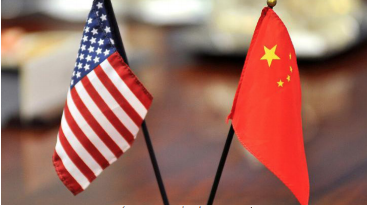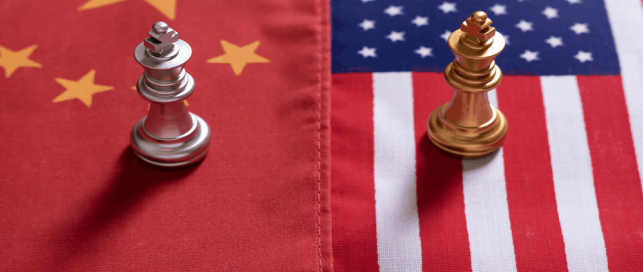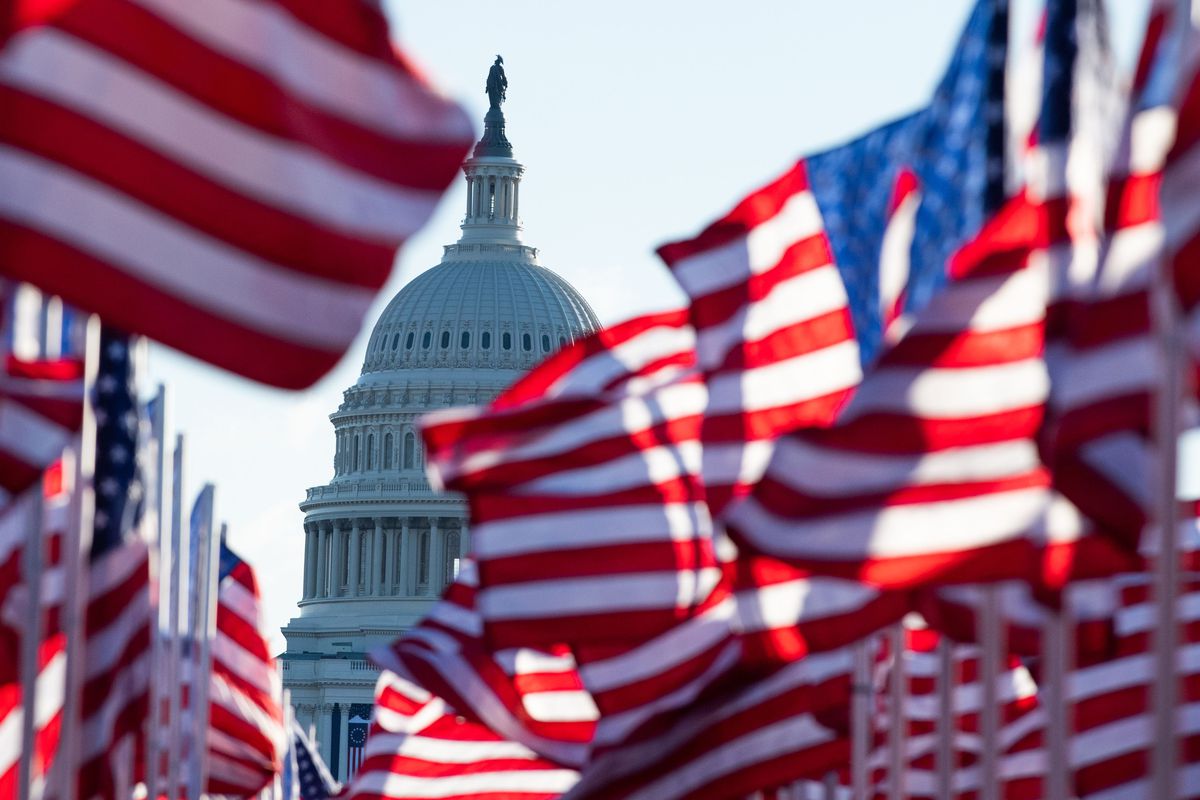Why Is China-U.S. Cooperation Critical to Global Stability and Prosperity?
May 31, 2021
Interview with Prof. Guo Xinning
Guo Xinning, Senior Fellow of Taihe Institute, Professor and Senior Director of International Program at School of Public Policy and Management, Tsinghua University
1. Is there a strong case for cooperation rather than competition and confrontation between China and the U.S., and if so, what is it?
The international system has undergone fundamental changes over the past two decades. The international power structure, global economic outlook, and geostrategic landscape have changed drastically. China’s rapid economic development and some spectacular achievements in a variety of areas have given rise to widespread apprehension and anxieties among U.S. politicians and scholars. Against this background, the U.S.-China relationship has entered a period of strategic transition in which we have witnessed more and more competition and rivalry due to various economic and political reasons.
A crucial dimension has also been gaining weight, however: the ever-deepening relationship of mutual interdependency between the two nations. Economically, they are extremely important partners to each other. Politically, they are both permanent members of the United Nations Security Council, sharing common responsibilities in global politics and security. They both play significant roles in maintaining regional and global stability. That is to say, the stable relationship between China and the U.S. has become an increasingly important prerequisite for global peace and prosperity. Neither country can afford to engage in a stark military confrontation which neither can be certain of winning.
Their relationship of mutual interdependency has served and will continue to serve as the driving force for cooperation between the two sides. It is absolutely vital that the leaders of both countries understand that reality and the necessity for cooperation—for the sake of their mutual interests and the well-being of all the people in the world.
2. In the current fast-changing and tense international environment, what issues are at stake if China and the U.S. do not cooperate?
Cooperation will be critical not only to the normal development of bilateral relations, but also to global stability and prosperity. As they are the two major influential countries in the world, the state of affairs between the U.S. and China has a very strong impact upon both the global economy and global security. The negative repercussions for the current international system will be felt immediately if the U.S. and China fail to join hands. Global economic development will stagnate—as happened during the Trump era, when the U.S. launched a de facto trade war on China and the status quo of global economy, especially the world trade system, was seriously undermined. In terms of global security, it will become more difficult to provide resolutions for the hotspots that have been disturbing global and regional security, and indeed setbacks will likely occur. As Singaporean Prime Minister Lee Hsien Loong put it in his keynote address at the Shangri-La Dialogue in Singapore on 31 May 2019, “Even short of outright conflict, a prolonged period of tension and uncertainty would be extremely damaging. Many serious international problems like the Korean situation, nuclear non-proliferation, and climate change cannot be tackled without the full participation of the U.S. and China, together with other countries.” Without joint and concerted efforts from the U.S. and China, it will also be difficult for the U.N. and other international organizations to come up with effective measures should a new serious crisis appear.
3. How can they cooperate while competing?
Friction and competition among nations is to be expected due to differing national interests, values, and perceptions. The U.S. and China have been able to maintain a relatively cooperative relationship since President Richard Nixon’s ice-breaking trip to China in 1972 despite the existence of various differences and conflicts of interest. If we are to draw lessons from the experience of managing the bilateral relationship in the past, it is clear that the two nations must do three things:
(source: pixabay.com)
Maintain and display a high sense of common responsibility. It is their common responsibility to avoid the worst-case scenario in bilateral relations for the interests of the populations of the two countries as well as of the whole world;
Develop a grand vision of bilateral relations. Both sides should be sober-minded and keep in mind a clear picture of the overall relationship to avoid being haunted by differences on minor issues or partial conflicts of interest. A strategic far-sightedness beyond the constraints of the times is needed, as proved by the great leaders in the early 1970s when the two countries were still in the state of serious confrontation and hostility;
Exercise political will and wisdom. It is observed that political differences between China and the U.S. have become a source of tension. The U.S. is getting frustrated that the political change it desires in China has not happened but remarkable economic growth has, while China is becoming anxious about the ongoing U.S. policy change towards China. Although it will be impossible for the two countries to discard all their differences, there is a possibility to coexist in their differences and frictions if they have the political will to keep away from a final showdown and the wisdom to come up with concrete measures to defuse tension and contain the trend toward further escalation in time of crisis.
4. How to anchor U.S.-China relations to prepare for potential storms ahead?
As China’s overseas interests have expanded in the process of its ever-deepening integration into the international system, the U.S.-China relationship has entered a period of uncertainty during which ups and downs will be inevitable. However, the prospect of the bilateral relationship developing in a stable manner exists as long as the two countries both have the will and show their sincerity. To that end, they must learn how to manage and control their differences in ideas and conflicts of interest in four ways.
First, agree to disagree. Imposing their own will upon each other will be counterproductive, leading to deteriorating relations. Efforts should therefore be made jointly to overcome or at least temporarily bypass differences so as not to darken the overall relationship. With the passing of time, differences that seem important at the beginning may become less important.
Second, acknowledge the legitimate interests and rights of the other side and show respect for their vital interests. No country is willing to compromise on such matters, and undesirable consequences will occur if the red lines of either side are touched or crossed.
Thirdly, maintain dialogue and communication in times of potential crisis. This would help defuse tension and prevent further escalation due to misunderstandings.
Fourthly, cultivate a code of conduct. Establishing rules for the game among nations will help make the development of their relations more predictable and prevent unintended crises.
5. Are China-U.S. relations a zero-sum game?
The concept of the zero-sum game can no longer be applied because of the relationship of mutual dependence that has emerged between the U.S. and China. That concept does not fit the general trend towards cooperation and coordination in state-to-state relations in the contemporary world. More importantly, neither side stands to gain from such a game. There would be no winner economically. The trade war launched by the U.S. has proven this. The economic advances that might have been achieved on both sides through normal exchanges failed to materialize.
It is also the same in security. The security cooperation between the two countries maintained in recent decades, promoting the security of both as well as global and regional stability, will be seriously undermined if either side seeks to weaken the security of the other. Such acts would make both sides less secure because of a possible vicious cycle of hostility. Clearly, it would be irresponsible for the U.S. and China to adopt a zero-sum approach toward the issues in their relationship.
(source: unsplash.com)
6. Might third countries accept a zero-sum strategy in their relations vis-a-vis- Washington and Beijing? Do their “allies” have to choose a side, given the intertwined relations they have with both—often more economic ties with Beijing and more politico-military ties with Washington?
The great majority of third countries will be unwilling to accept a zero-sum strategy in their relations with Washington and Beijing. For many, choosing sides would be a dilemma. Lee Hsien Loong has said that “in a new Cold War, there can be no clear division between friend and foe. Nor is it possible to create NATO or Warsaw Pact equivalents with a hard line drawn through Asia, or drawn down the middle of the Pacific Ocean.” He voiced desire that “the U.S. and China find a constructive way forward, competing certainly, but at the same time cooperating on major issues of mutual interest,” adding: “The bottom line is that the U.S. and China need to work together, and with other countries too, to bring the global system up to date rather than upending it.”
Dr. Mahathir Mohamad, former Prime Minister of Malaysia, once observed in an interview that, “I will choose a rich China, not an unpredictable U.S., if I have to. As a neighbor of 2000 years, China has never attempted to conquer us, but Europeans came to Southeast Asia in 1509 and occupied Malaysia in two years.”
Even U.S. allies would have a hard time choosing sides. Most have benefited from close economic ties with China. With the ever-interwoven relations between international politics and economics, it would be almost impossible to enjoy economic benefits from China while siding with the U.S. politically.
7. Can China and the U.S. reset their relationship? What would the parameters of such a reset be?
The two countries have already made efforts to reset their relations—as seen in recent interactions, such as high-level dialogue. The term “normal track” may be more appropriate than “resetting” going forward because the relationship has undergone a period of confrontation and turbulence rarely seen since normalization began in the early 1970s.
In my personal view, although the top leaders on both sides have expressed desire to improve bilateral relations, both countries have yet to make substantial and concrete efforts to remove measures put in place to obstruct normal economic relations, or to resume normal social and cultural exchange, restore bilateral platforms of dialogue and communication that have been out of action for the past few years, or avoid acts undermining the vital interests of the other side.
8. In your areas of expertise, what common or complementary interests do China and the U.S. have? Do they need common interests or complementary interests in order to cooperate?
(source: unsplash.com)
Common and complementary interests are the drivers for cooperation. Without them there would be no motivation for cooperation among nations. The U.S. and China enjoy a broad range of common and complementary interests both in bilateral relations and in the international system. A close and strong economic relationship would benefit both sides because they are huge markets and sources of foreign direct investment for each other. In security, there is a lot of common ground. Historically, they joined up in the war against Fascism during the Second World War and formed de facto strategic cooperation against Soviet expansion in the 1970s and 1980s. The contemporary world faces numerous security challenges, traditional and non-traditional. As permanent members of the UNSC, the U.S. and China share a common responsibility to preserve international peace and stability at global and regional levels. Serious security issues such as international terrorism, piracy, and armed robberies on sea lines of communication (SLOC), proliferation of weapons of massive destruction, and regional armed conflicts all call for sincere cooperation between the U.S. and China. Their sound and constructive security relationship would improve not only the security environment they each face, but also the atmosphere for security cooperation globally and regionally. This, in turn, would promote the security of the two nations and the world at large.
—————————————————————
ON TIMES WE FOCUS.
Should you have any questions, please contact us at public@taiheglobal.org


